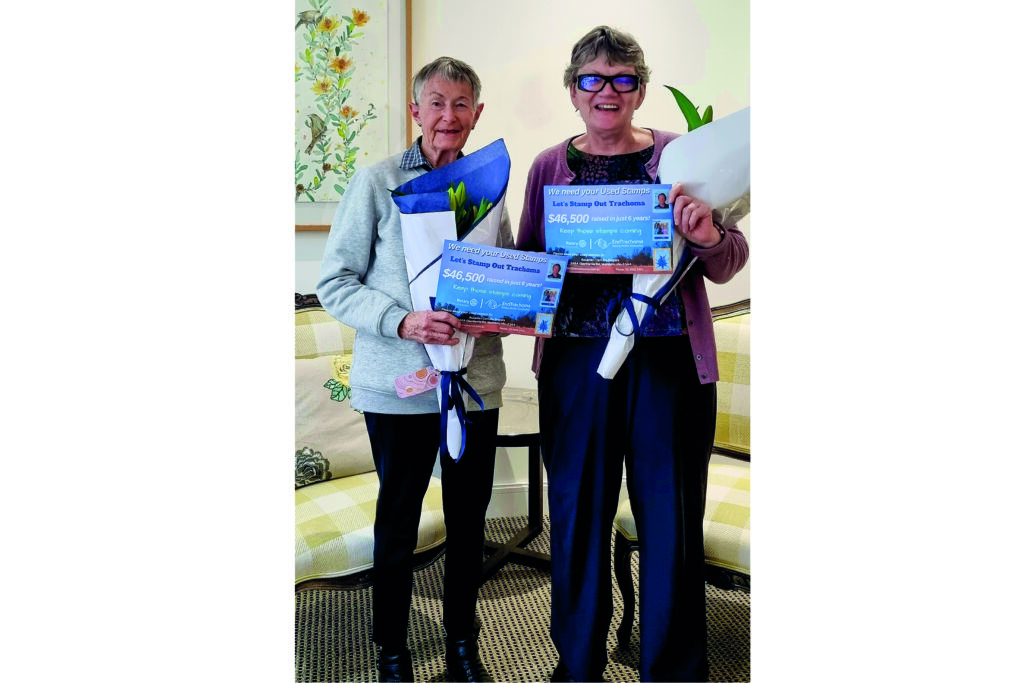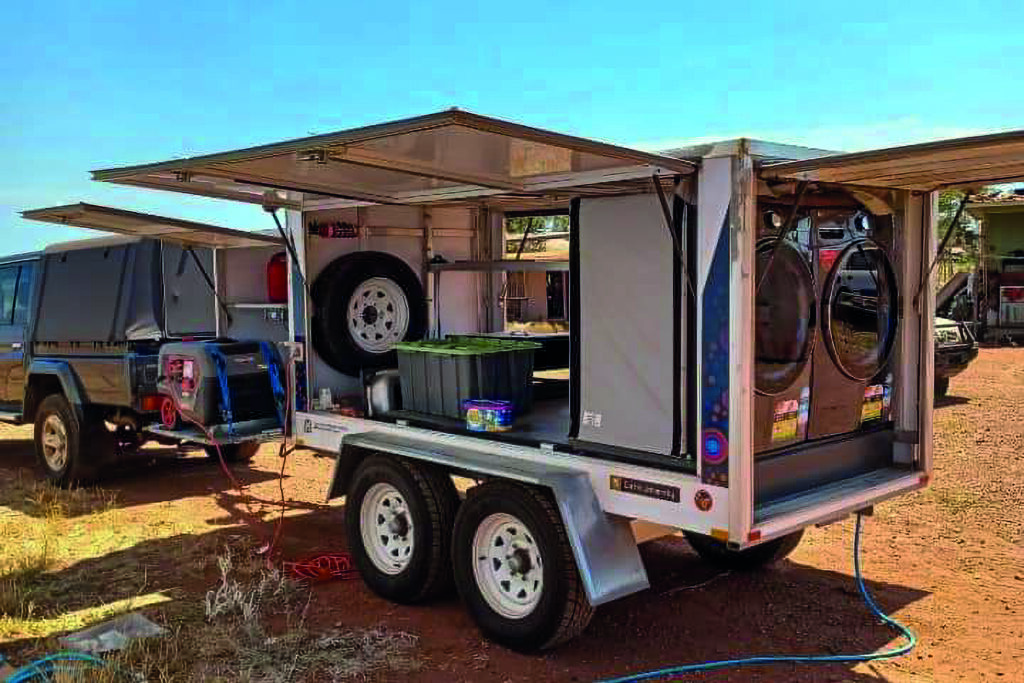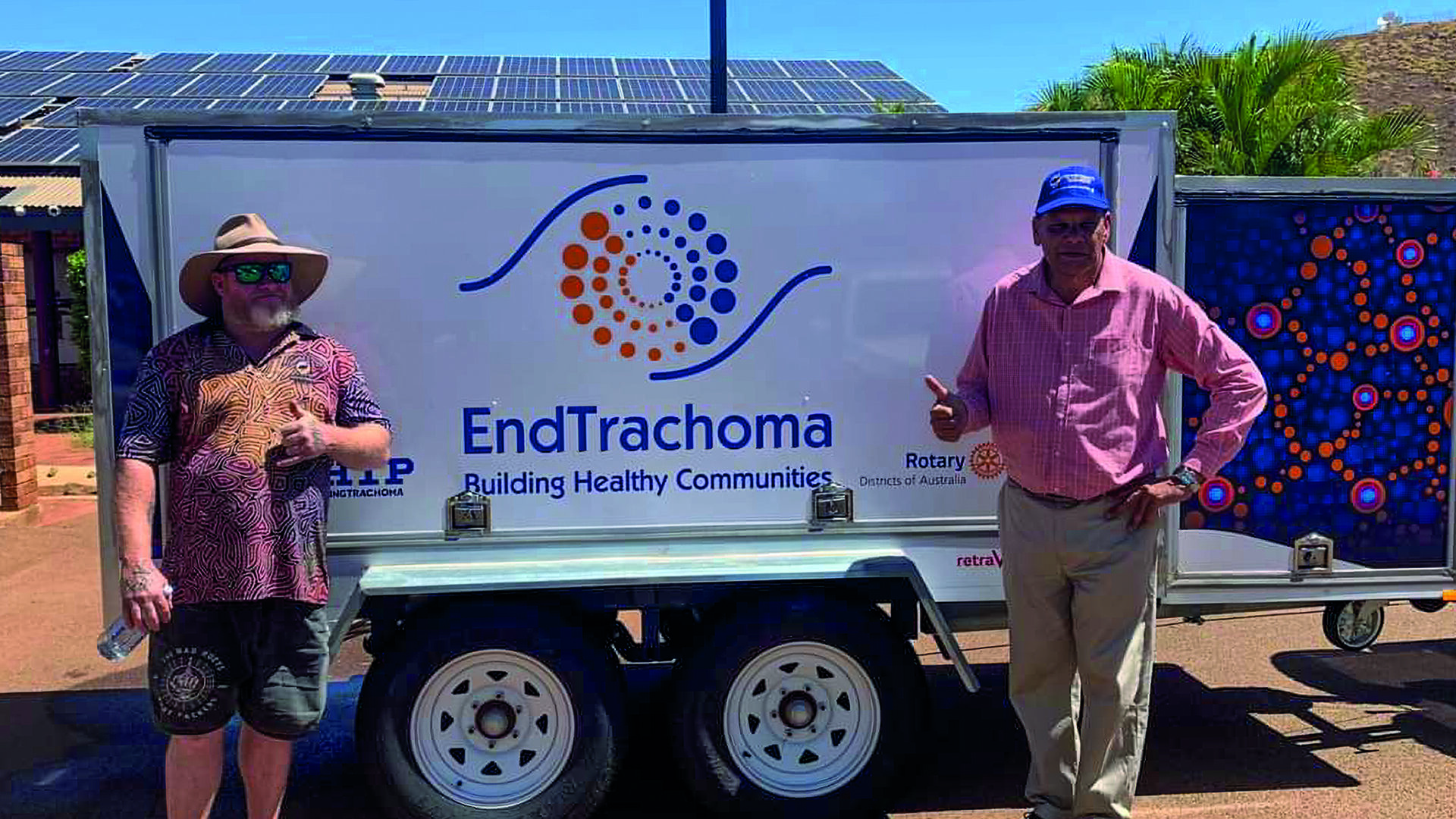A simple idea of salvaging used stamps has raised $150,000 for various humanitarian projects, including EndTrachoma.
In 1992, Carrol Farmer, president of the Rotary Club of Bayswater North, Vic, had a club-changing idea. At the time, the club was broke, and her son’s school was raising good money from selling postage stamps at a stall. Email communication was not widely used in the early 90’s, and people were still largely using regular postage. Carrol saw this as a possible opportunity for fundraising, and so the Philatelic Garbology project was born. Over the past 32 years, more than $150,000 has been raised.
In those days, one of the main sources of stamps were envelopes left over from competitions. The Age ran a hugely popular competition one year that required six mastheads to be placed into an envelope to win a car. Carrol contacted The Age and got her company’s truck driver to swing by and pick up the competition envelopes. To her amazement, 72 large mailbags arrived – a huge amount, and one not really relished by the club who had volunteered to tear off the stamps!

PICTURED: Founding Philatelic Garbology project coordinator Carrol Farmer, left, with current project lead Camille Rogers.
It took six long months, over several gin and tonics, for Carrol and her husband Eric to extract the used stamps, with the help of the club.
Each stamp had to be torn from the envelope and then sorted into various categories according to value, events and nations. Local stamp dealers were then approached to establish the best prices. One dealer offered $28 per kilo of trimmed stamps – a good price at that time. Encouraged, stamp nights became a regular club feature.
Stamps made their way to Carrol from all kinds of places. Carrol and Eric took part in a Rotary Exchange program in the early 90’s where they stayed with Rotarians across Canada. This helped spread the word and generated further welcome supplies. As Carrol says, it’s much easier to ask for rubbish than dollars!
Money raised went to projects such as purchasing a Perkins Brailler for a blind child, End Polio Now, a mine detector for Cambodia, the Fred Hollows Foundation, Wheelchairs for Kids, the Cathy Freeman Foundation for Indigenous Youth, and many more. However, for the past six years, all funds have been dedicated to the EndTrachoma project.
The amount has so far exceeded $52,000, which paid for a $48,000 mobile washer-dryer laundry trailer that was donated for use in trachoma-affected communities in Western Australia. The trailer travels between communities where trachoma and other hygiene-related diseases are prevalent, and contains two washer-dryers, a wash basin, a 1,000-litre water tank, a barbecue, generator, a bouncing castle, and a tool kit for basic home repairs.

MAIN PICTURE & PICTURED ABOVE: The Mobile EndTrachoma washer-dryer Trailer in Western Australia.
The organisation also fixes sinks, toilets, leaky pipes, showerheads, and other plumbing issues to minimise the spread of this horrible disease.
Trachoma is the leading infectious cause of blindness in the world, and Australia is shamefully the only developed country that still has it. It remains a disease of poverty and disadvantage, occurring in pockets where living conditions are crowded, water is scarce, and sanitation is inadequate.
In 2009, 14 per cent of at-risk communities in Australia had trachoma. In 2021, that figure reduced to 3.3 per cent. However, we still have communities where rates are as high as 20 per cent, and so the work continues.
Eric passed away in 2019, and while Carrol stepped back from her club, she is still an honorary Rotarian and continues to assist trimming/sorting stamps. Philatelic Garbology continues under the leadership of Camille Rogers, a member of the Rotary Club of Glen Waverley, Vic.
Stamps arrive at Camille’s shop in Malvern from all over Australia. There are collections and albums from deceased estates, envelopes from hospitals, schools, councils, and many other businesses that take the time to rip the stamps from the envelopes and send them to Camille for trimming, sorting and selling.
Who would have imagined that from such humble beginnings, this little project of rubbish collection could be still operating 32 years later.
